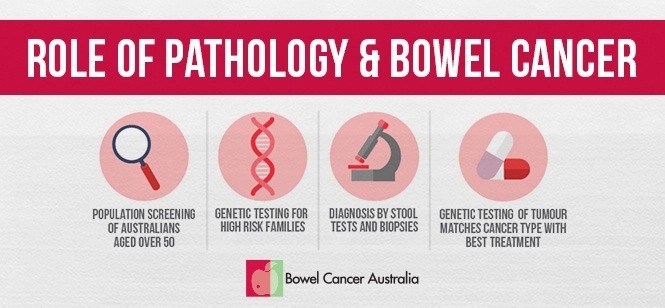The latest research on bowel cancer awareness in Australia has been published in Public Health Research & Practice and shows some concerning trends.
It reveals poor knowledge of bowel cancer risk factors and screening recommendations among Australians aged 18 – 85 years, increasing the risk of missed tests and delayed diagnosis.
- Almost half (47%) of respondents aged 50+ were unaware of the recommended bowel cancer screening test
- Only 39% of respondents knew how often the test should be undertaken
- Less than a third of respondents knew the recommended minimum screening age
- Only 24% of respondents correctly identified bowel cancer risk factors
Bowel cancer is Australia’s second biggest cancer killer. It is estimated that 33,000 Australians will die of bowel cancer by 2025. In Australia there are 15,253 people diagnosed with bowel cancer each year and 2,186 of these people were under 55.
According to the study, fewer than a quarter of those surveyed could identify the risk factors that could increase their chances of developing bowel cancer.
Lifestyle related risk factors for bowel cancer include; smoking, alcohol consumption, being overweight and a diet low in fibre. These risks can all be modified by changes to lifestyle.
Other risk factors are age, genetics, personal and family health history. People with one or more of these risk factors should speak to their GP about bowel cancer screening.
At the time of the study the National Bowel Cancer Screening Program was underway (Dec 2015 – Mar 2017), and this invited eligible Australians to undertake at-home screening tests.
“Affecting men and women, young and old, bowel cancer often develops without any warning signs,” said colorectal cancer surgeon Graham Newstead AM.
“That’s why Australians need to know the risk factors, make necessary lifestyle modifications, participate in screening appropriate to their level of risk, and be on the lookout for symptoms suggestive of bowel cancer,” Dr Newstead said.
“Unfortunately, the report shows that knowledge of bowel cancer risk factors and screening recommendations remains dangerously low,” said Bowel Cancer Australia Chief Executive Julien Wiggins.
“Studies show participating in screening can reduce your risk of dying from bowel cancer by 16%.
From age 50, Australians can take advantage of the taxpayer-funded National Bowel Cancer Screening Program (NBCSP).
However, people are encouraged to speak to their GP about individual circumstances and participate in screening appropriate to their personal level of risk.”
Possible symptoms of bowel cancer may include:
- A persistent change in bowel habit, especially going to the toilet more often of having looser, more diarrhoea-like movements
- Blood in the bowel movement or rectal bleeding
- A change in appearance of bowel movements (e.g. narrower stools or mucus in stools)
- Unexplained anaemia causing tiredness, weakness or weight loss
- A lump or swelling in your abdomen
It is important to note that these symptoms are not necessarily indicative of cancer, other medical conditions, some foods and certain medications can also cause these changes.
Pathology testing, physical examination and other diagnostic tools can help doctors to determine the cause of any symptoms. Anyone experiencing symptoms such as those listed should talk to their doctor about them.
“When diagnosed at the earliest stages, 90% of bowel cancer cases are treatable,” Mr Wiggins said.
“But early diagnosis is only possible if patients with a positive screen result or symptoms suggestive of bowel cancer can access the necessary follow up, such as colonoscopy, within the recommended timeframe,” said Mr Wiggins.
“Symptoms suggestive of bowel cancer require timely investigation via colonoscopy, so don’t wait until it’s too late,” urged Mr Wiggins.

